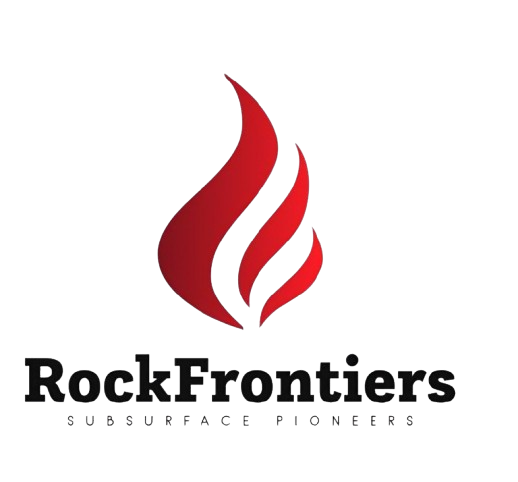📊 Budgeting and Forecasting: Process, Tools, and Techniques
📘 Course Description This course delivers practical and strategic insights into the budgeting and forecasting cycle, empowering professionals to drive performance and value through effective financial planning. Participants will learn how to design, manage, and improve budgeting frameworks and use …
Overview
📘 Course Description
This course delivers practical and strategic insights into the budgeting and forecasting cycle, empowering professionals to drive performance and value through effective financial planning. Participants will learn how to design, manage, and improve budgeting frameworks and use modern forecasting techniques and tools—such as rolling forecasts, scenario planning, and driver-based models—to increase accuracy and flexibility. The course also highlights key challenges, automation trends, and how to align budgeting with strategic business goals.
🎯 Course Objectives
By the end of this course, participants will be able to:
-
Understand different budgeting methods (zero-based, incremental, rolling, etc.)
-
Design an efficient and integrated budgeting process
-
Use forecasting techniques and tools for business planning
-
Align operational, capital, and strategic budgets
-
Build Excel-based forecasting and variance analysis models
-
Apply scenario planning and sensitivity analysis
-
Communicate budget results to stakeholders effectively
👥 Who Should Attend
-
Finance Managers and Analysts
-
Budget Officers and Controllers
-
Project and Cost Accountants
-
Department Heads and Planners
-
Internal Auditors and Risk Officers
-
ERP/FP&A Tool Users
-
Senior Executives involved in planning and control
🧠 Training Methodology
-
Interactive lectures
-
Real-world case studies
-
Hands-on exercises in Excel
-
Group projects & presentations
-
Templates and toolkits
-
Knowledge quizzes and final assessment
🗓️ Detailed Daily Agenda with Time Breaks
📗 Day 1: Fundamentals of Budgeting and Forecasting
| Time | Topic |
|---|---|
| 08:30–09:00 | Registration and Introductions |
| 09:00–10:30 | Purpose and Role of Budgeting in Corporate Strategy |
| 10:30–10:45 | ☕ Coffee Break |
| 10:45–12:15 | Budgeting Types: Incremental, Zero-Based, Rolling, Flexible |
| 12:15–13:15 | 🍽 Lunch |
| 13:15–14:45 | The Budgeting Process Cycle: Key Stages and Stakeholders |
| 14:45–15:00 | ☕ Coffee Break |
| 15:00–16:30 | Introduction to Forecasting: Concepts and Challenges |
📘 Day 2: Budgeting Techniques and Best Practices
| Time | Topic |
|---|---|
| 08:30–10:00 | Operational Budgeting: Production, Sales, Procurement |
| 10:00–10:15 | ☕ Coffee Break |
| 10:15–12:15 | Capital and Cash Flow Budgets |
| 12:15–13:15 | 🍽 Lunch |
| 13:15–14:45 | Best Practices in Budget Consolidation and Versioning |
| 14:45–15:00 | ☕ Coffee Break |
| 15:00–16:30 | Hands-on: Building an Integrated Budget Model in Excel |
📙 Day 3: Forecasting Tools and Applications
| Time | Topic |
|---|---|
| 08:30–10:00 | Forecasting Methods: Historical, Time Series, Regression |
| 10:00–10:15 | ☕ Coffee Break |
| 10:15–12:15 | Rolling Forecasts vs Traditional Forecasts |
| 12:15–13:15 | 🍽 Lunch |
| 13:15–14:45 | Driver-Based Forecasting Models |
| 14:45–15:00 | ☕ Coffee Break |
| 15:00–16:30 | Forecast Accuracy, Bias, and Error Measurement |
📕 Day 4: Planning for Uncertainty and Performance Monitoring
| Time | Topic |
|---|---|
| 08:30–10:00 | Scenario Planning and Sensitivity Analysis |
| 10:00–10:15 | ☕ Coffee Break |
| 10:15–12:15 | Variance Analysis: Identifying and Explaining Deviations |
| 12:15–13:15 | 🍽 Lunch |
| 13:15–14:45 | Linking KPIs to Budgets and Forecasts |
| 14:45–15:00 | ☕ Coffee Break |
| 15:00–16:30 | Group Exercise: Variance Reporting Presentation |
📒 Day 5: Technology, Integration, and Action Planning
| Time | Topic |
|---|---|
| 08:30–10:00 | Budgeting and Forecasting with Modern Tools (ERP, BI, FP&A) |
| 10:00–10:15 | ☕ Coffee Break |
| 10:15–12:15 | Data Visualization and Dashboards in Excel or Power BI |
| 12:15–13:15 | 🍽 Lunch |
| 13:15–14:45 | Aligning Budgets with Strategic Planning and Change Management |
| 14:45–15:00 | ☕ Coffee Break |
| 15:00–16:30 | Course Review, Action Plan & Certificates |
📂 Course Materials Provided
-
Digital and printed training manual
-
Excel budgeting and forecasting models
-
Scenario and variance templates
-
Performance dashboard templates
-
Certificate of Completion
Target audiences
- Reservoir Engineers, Geologists
You May Like
Gas and oil laboratories in the petroleum industryCopy
Course Description This course provides a comprehensive overview of laboratory practices, techniques, and standards used in the petroleum industry. Participants will understand how laboratory results guide exploration, drilling, production, and refining decisions. The course explores lab procedures for PVT analysis, …
Advanced gas chromatography techniques and troubleshooting
📘 Course Description: This advanced-level course is designed for experienced chromatographers and laboratory professionals who wish to master the latest techniques, applications, and in-depth troubleshooting strategies in Gas Chromatography (GC). The program focuses on method enhancement, selectivity tuning, high-resolution separations, …
🧪 Gas Chromatography Analysis – Principles, Practice & Applications
📘 Course Description: This intensive course provides a comprehensive understanding of Gas Chromatography (GC) and its application in chemical, petrochemical, pharmaceutical, and environmental laboratories. Participants will learn the fundamentals of gas chromatographic theory, the hardware components, detector technologies, sample preparation, …
Gas and oil laboratories in the petroleum industry
Course Description This course provides a comprehensive overview of laboratory practices, techniques, and standards used in the petroleum industry. Participants will understand how laboratory results guide exploration, drilling, production, and refining decisions. The course explores lab procedures for PVT analysis, …
Advanced Specialist Petroleum GeoMechanics
📘 Course Description: This elite-level course is tailored for petroleum geomechanics specialists and senior subsurface professionals engaged in complex field development projects. It provides a deep technical dive into stress modeling, anisotropic rock behavior, coupled geomechanical-reservoir simulation, fault/fracture mechanics, and …





